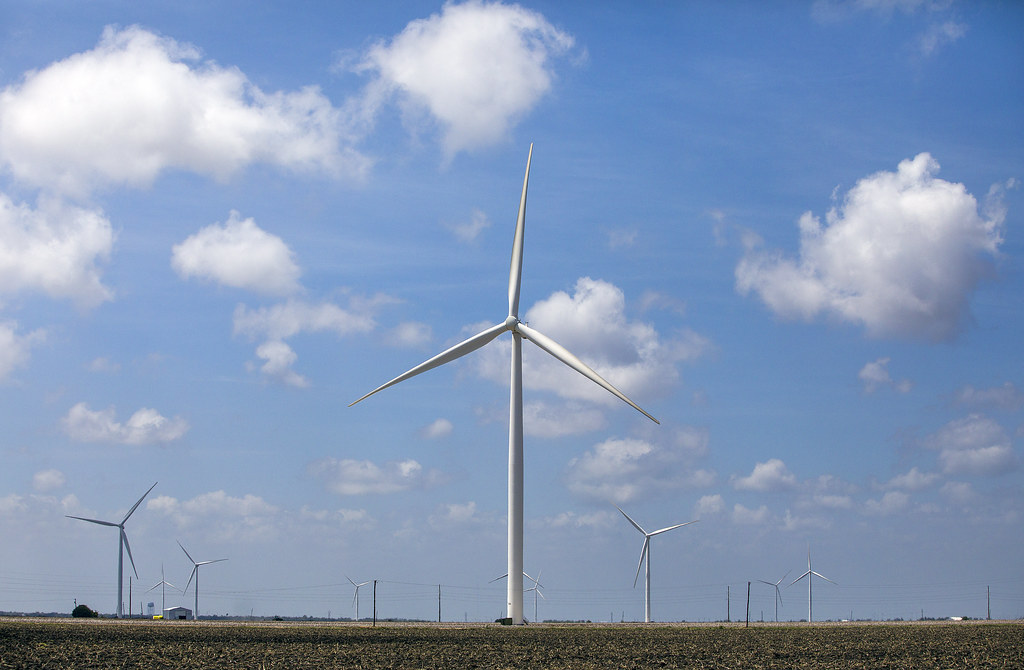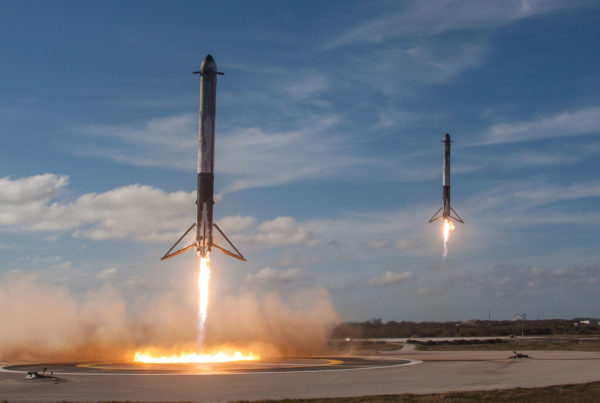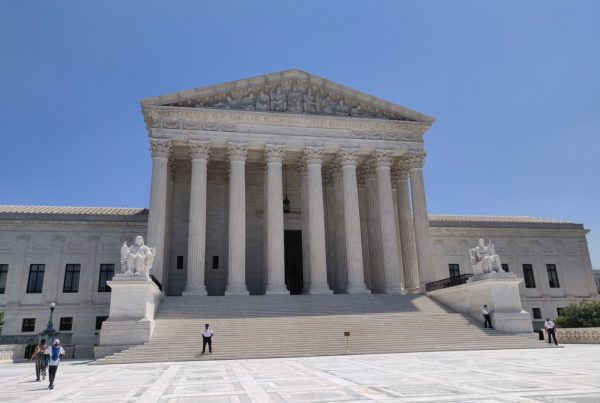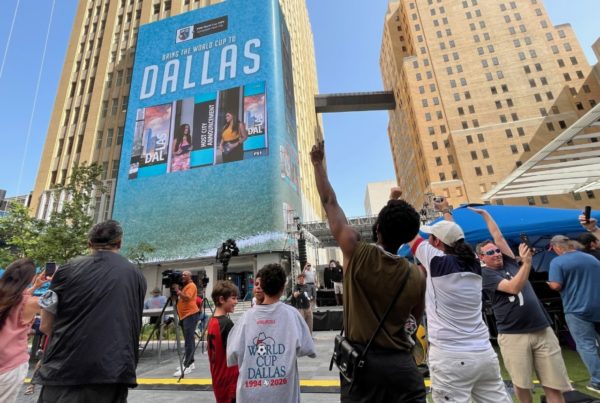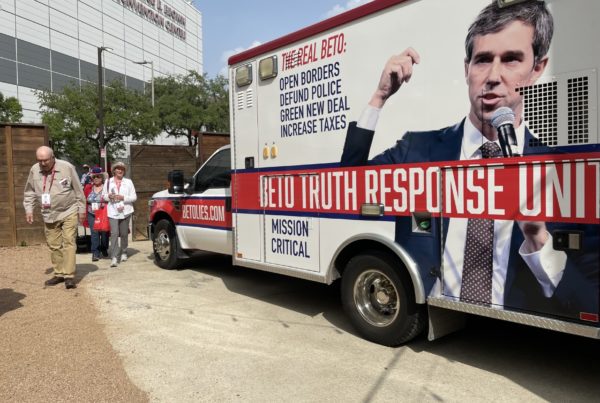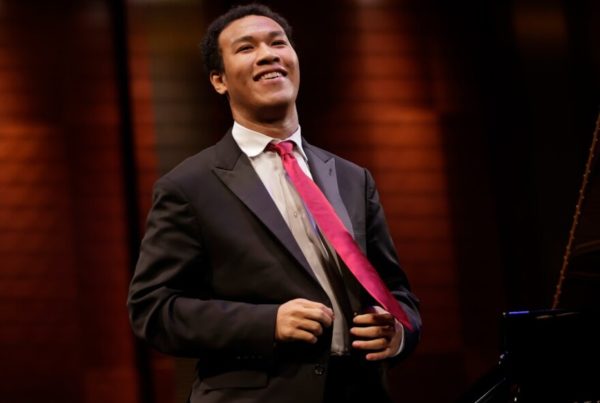While a lingering heatwave impacts people all across Texas, renewable energy sources are picking up the slack for the state’s power grid. But as energy demand continues to grow, is a fossil fuel-friendly Texas moving fast enough on embracing renewable energy?
Michael Webber, a UT Austin engineering professor and an energy expert, spoke to the Texas Standard to discuss the future of renewable energy in Texas and what that may entail for the state’s power grid. Listen to the interview above or read the transcript below.
This transcript has been edited lightly for clarity:
Texas Standard: We continue to hear about the record demand for electricity, but what we’re not hearing is anything about the facilities that we need to help support these growing energy demands long-term. Are we moving fast enough?
Michael Webber: The short answer is, we’re moving fast — and we’re moving faster than just about anywhere in America — but we’re not moving fast enough. We’ve got a lot more to do.
What should we do? Is there enough money to go around, and is the regulatory infrastructure malleable enough to deal with what our needs are?
I think there’s enough money to go around, and money likes to invest in Texas because we can get things done quickly. So, we’re an attractive market for money to flow here to build stuff. But we do have some regulatory constraints, especially around transmission lines and some permitting and citing that could be faster. So, I think there are things we can do to really facilitate the ease of getting things done even more.
What are the things that you think needs to happen?
There are three things. So, the fundamentals of Texas is that there’s a triple compounded need for new power plants.
The first is just population growth and economic growth. There are more Texans every day and we’re a busy group of people, so we get a lot of economic activity. So, you have to build a lot of power plants for that.
The second thing is, a lot of the power plants built about 40 and 50 years ago are due for retirement. They are at the end of their life. And so, we have to build a lot of things just to replace the things that we built four or five decades ago.
The third sort of reason for a lot of growth in demand for electricity is because we’re electrifying a lot of things we used to use heat for, like gasoline engines are now going to become electric cars. So, that’s even more growth on electricity. So, we got to build a lot of stuff pretty quickly.
Are the wheels rolling already? Are you hearing anything about new renewable energy facilities being built?
Yes, it doesn’t capture the headline quite the same way, but we have built a lot of things since the winter storm in February 2021. We’ve especially built a lot of solar, a lot of storage and some wind, and we’ve got more in the queue to be built. So, there’s more happening. The slowdown now is getting it connected to the grid and having enough capacity on the grid and on the transmission lines to take it.
So, getting it from point A to point B seems to be one of the biggest challenges right now?
Yeah, think of it like with our transportation system. We’ve got a lot more cars on the road, but we haven’t expanded the roads. The roads get congested. That’s the same thing with the power sector. We got more power plants and more consumers, but fewer ways to move the electrons from one place to another.
Do you think that there’s a realization among policymakers that that is a weakness right now?
I don’t think they are. I think the policymaking establishment, at least on the elected side, is more focused on the identity of the fuel sources.
Like it’s fossil fuels versus renewables?
Exactly, yeah. So, Republican leadership in Texas says fossil fuels are good and renewables are bad. Like there’s kind of this silly political identity. So, the elected are kind of missing the point on transmission. Now, the Public Utility Commission of Texas and ERCOT, they know about transmission. They’re thinking about it. So, the people who are sort of in the details of the grid think about it all the time. I feel like the elected are maybe not as focused on that as they should be.
What would you say we should be putting priority on?
I think there are three things we can do that require cooperation between the markets and government policymakers that would really firm up the reliability of the grid while lowering costs and lowering pollution.
One is more energy efficiency: Improve the way our buildings operate so it won’t need as much air conditioning or heating.
The second is demand response: Coming up with ways to turn off things that are unnecessary, like pool pumps or water heaters, when it’s hot outside. Industry does this, but we don’t do this in our homes as much. Turning off demand is as good for reliability as turning on supply or turning on a power plant.
And then the third thing is building more transmission lines. So, if we do energy efficiency, demand response and transmission lines, the rest will sort itself out because we know how to build the power plants and we know how to consume electricity, we just need to connect all the pieces together.


